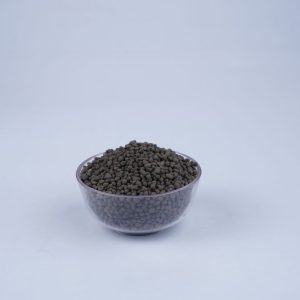Mycorrhizal fungi have long been a hidden force in nature, quietly working to enhance plant growth and soil health. These remarkable microorganisms form symbiotic relationships with plant roots, unlocking a range of benefits that support sustainable farming and gardening practices. The science behind mycorrhiza is fascinating, offering insights into how these fungi revolutionize plant growth, improve nutrient uptake, and enhance overall ecosystem health. In this blog, we will explore the vital role mycorrhiza plays in modern agriculture and gardening and how they can be harnessed for better, greener plant growth.
What is Mycorrhiza? Understanding the Symbiosis Between Fungi and Plants
Mycorrhiza refers to a mutually beneficial relationship between mycorrhizal fungi and plant roots. The fungi attach themselves to the roots, forming a network of microscopic threads known as hyphae, which extend into the soil. In return for sugars and other nutrients provided by the plant, the fungi enhance nutrient absorption, particularly phosphorus, and improve overall root health. This symbiotic partnership has been key to plant survival for millions of years, providing vital ecosystem services that increase plant resilience and growth potential.

Enhanced Nutrient Uptake
Improved Soil Structure
Increased Disease Resistance
Boosted Plant Growth
Reduced Fertilizer Costs
Better Resistance to Stress
Sustainability at Its Best
How Mycorrhiza Revolutionizes Sustainable Agriculture
Mycorrhizal fungi are increasingly recognized for their role in sustainable farming. They provide an eco-friendly way to enhance plant growth while reducing environmental impacts. Here’s how they contribute to sustainable agricultural practices:
Reduced Chemical Dependency: Mycorrhiza improves nutrient uptake, reducing the need for synthetic fertilizers and promoting eco-friendly farming practices.
Soil Health Restoration: These fungi restore soil health by improving soil structure, enhancing microbial diversity, and fostering a more resilient soil ecosystem.
Long-Term Soil Fertility: By enhancing natural nutrient cycling and organic matter decomposition, mycorrhiza contributes to long-term soil fertility and sustainability.
Supporting Organic Farming: Mycorrhizal fungi align perfectly with organic farming principles by reducing the need for chemical inputs and supporting more natural farming methods.
The soil is the great connector of our lives, the source and destination of all. It is the most important element in the sustainability of life on Earth. Wendell Berry, American writer, farmer, and environmental activist
Why You Should Consider Mycorrhiza for Your Garden or Farm
Whether you’re a commercial farmer or a home gardener, incorporating mycorrhizal fungi into your soil offers a range of benefits. Here’s why you should consider using mycorrhiza.
Stronger, Healthier Plants: Mycorrhizal fungi promote healthier root systems and boost plant growth, resulting in stronger and more productive plants.
Supporting Organic Farming: Mycorrhizal fungi align perfectly with organic farming principles by reducing the need for chemical inputs and supporting more natural farming methods.
Long-Term Soil Fertility: By enhancing natural nutrient cycling and organic matter decomposition, mycorrhiza contributes to long-term soil fertility and sustainability.


The science of mycorrhiza reveals a fascinating and powerful tool for transforming agriculture and plant growth. By forming symbiotic relationships with plant roots, mycorrhizal fungi unlock a range of benefits—from better nutrient uptake to improved soil structure and enhanced disease resistance. As the agricultural industry increasingly turns towards sustainable practices, mycorrhiza stands out as a crucial component for healthier, more productive plants. Whether you’re a large-scale farmer or a home gardener, using mycorrhizal fungi can lead to greener, more resilient growth while promoting long-term soil health. Embrace the power of mycorrhiza and take a step toward sustainable agriculture today.






